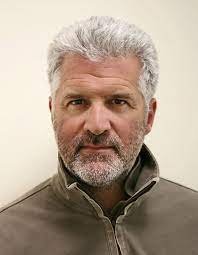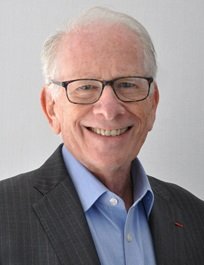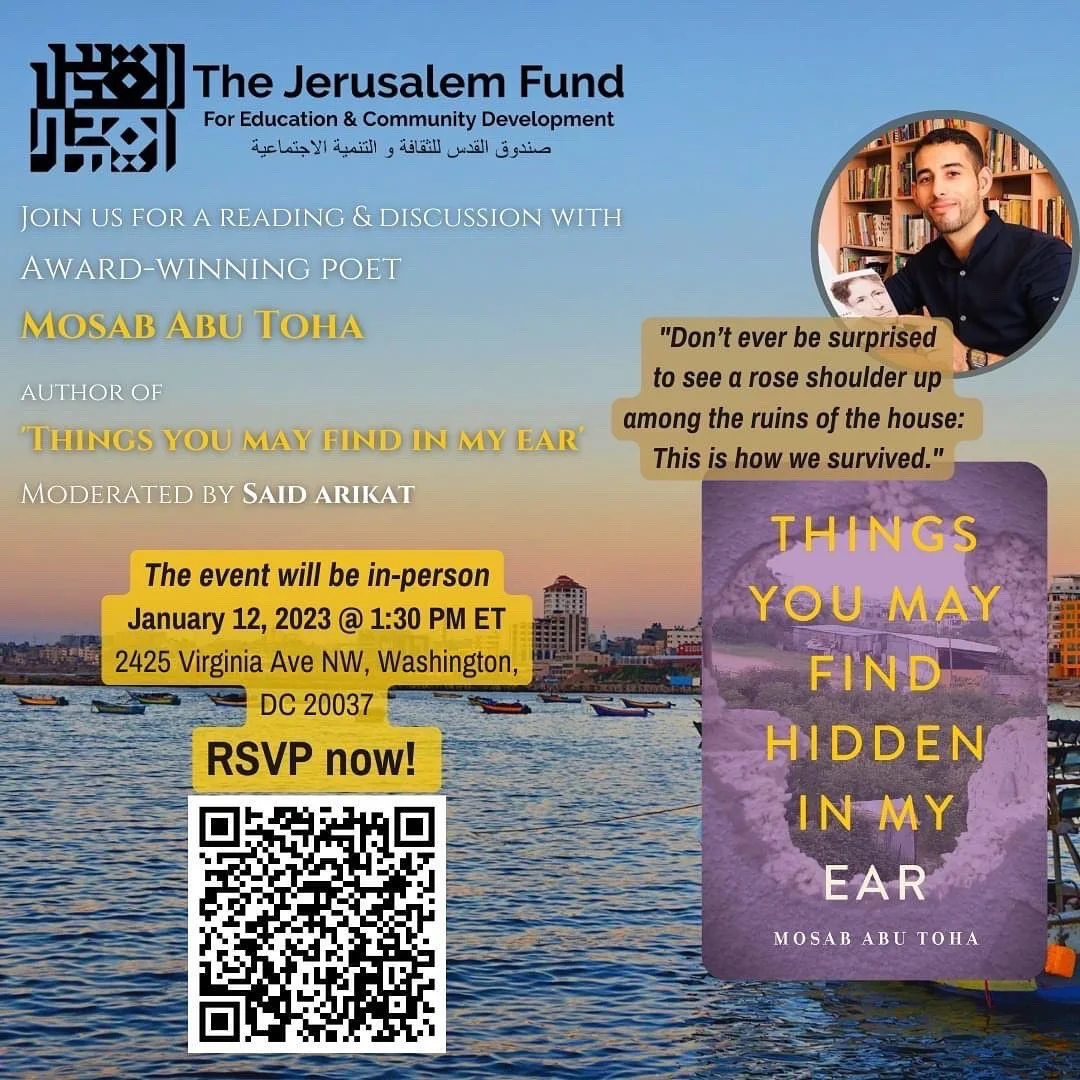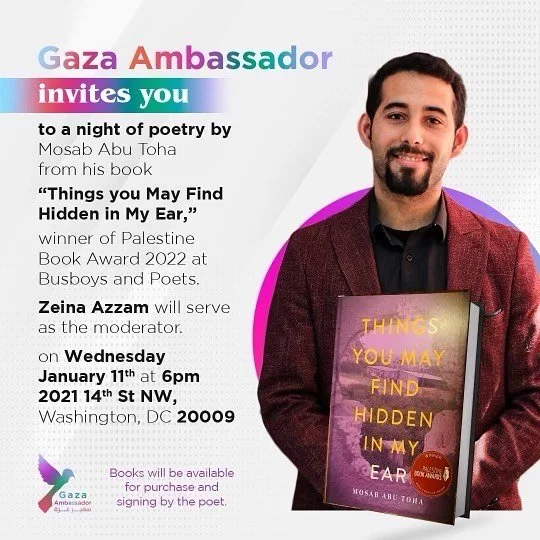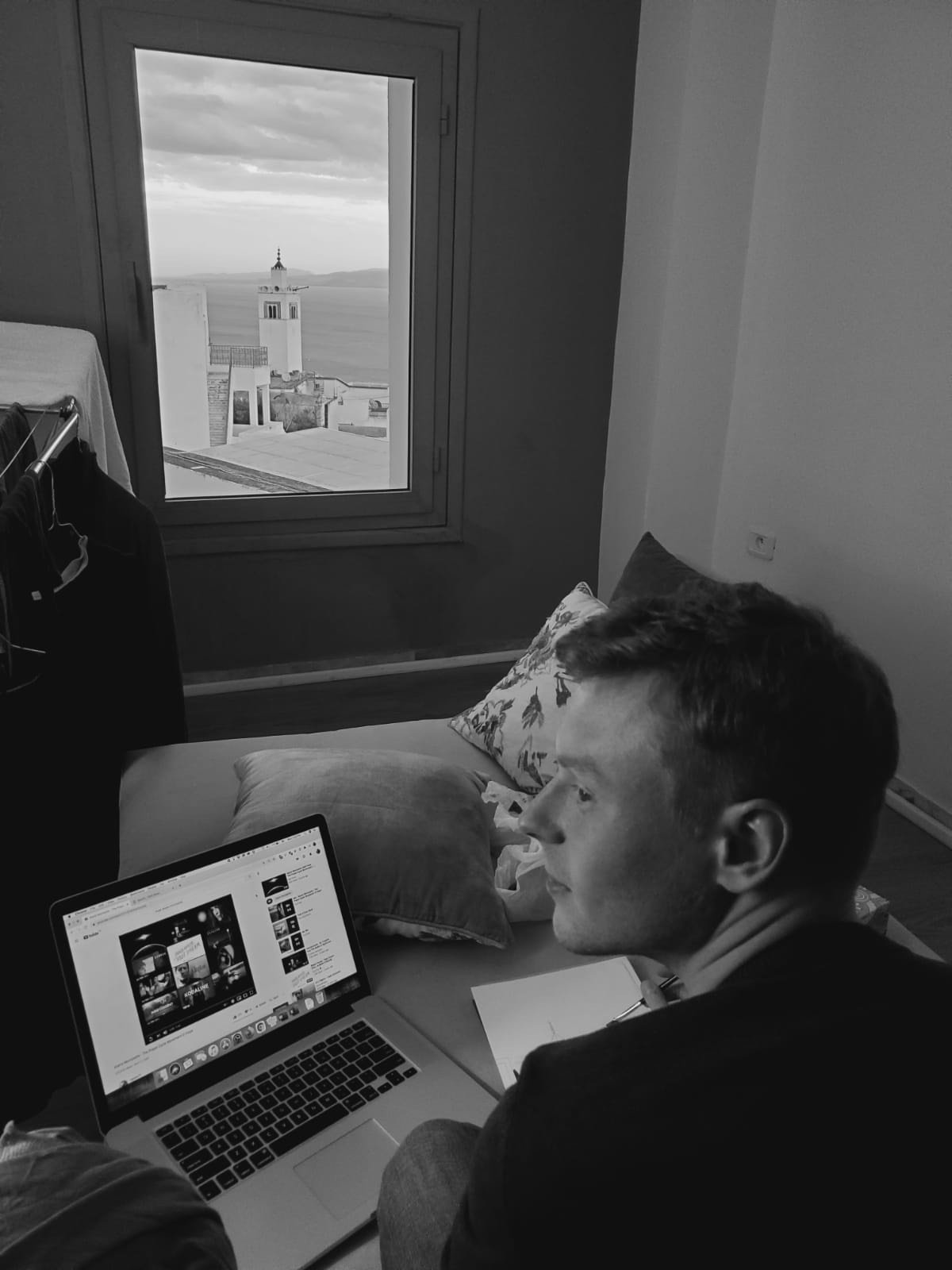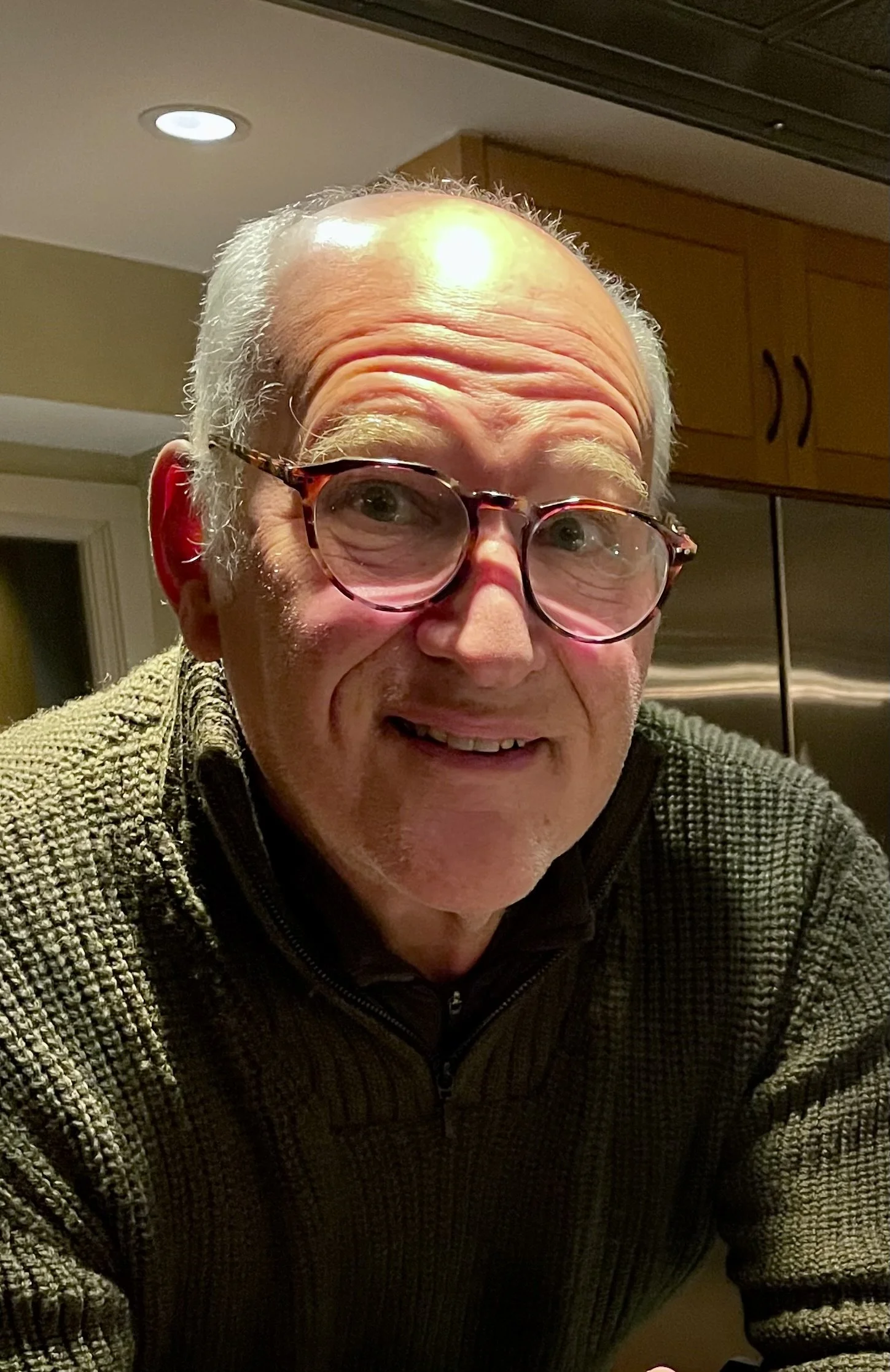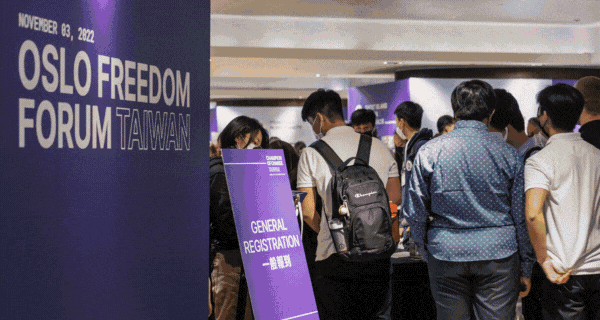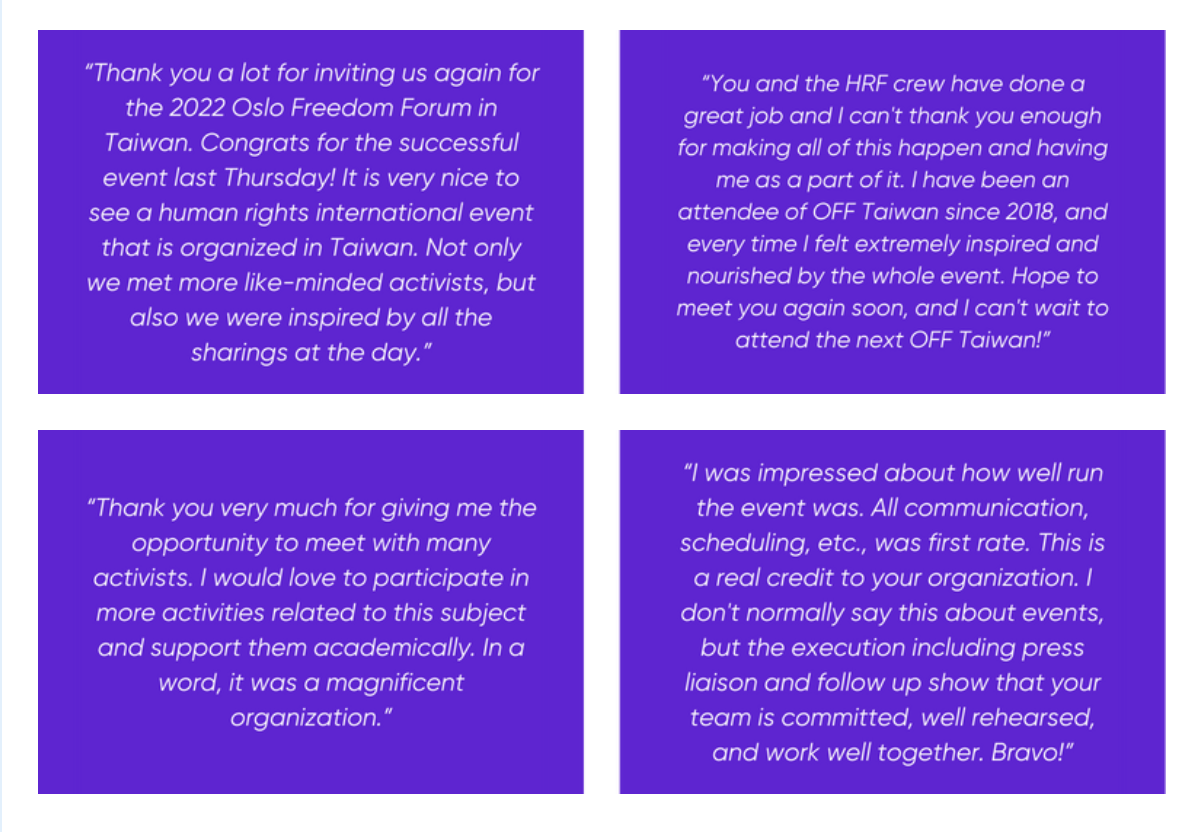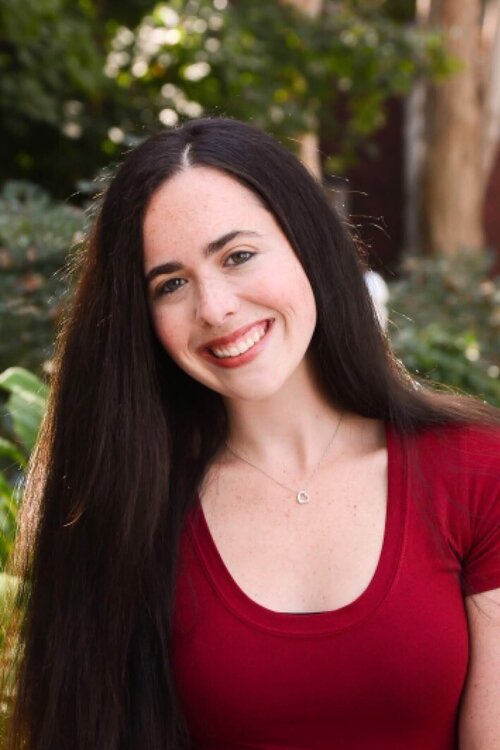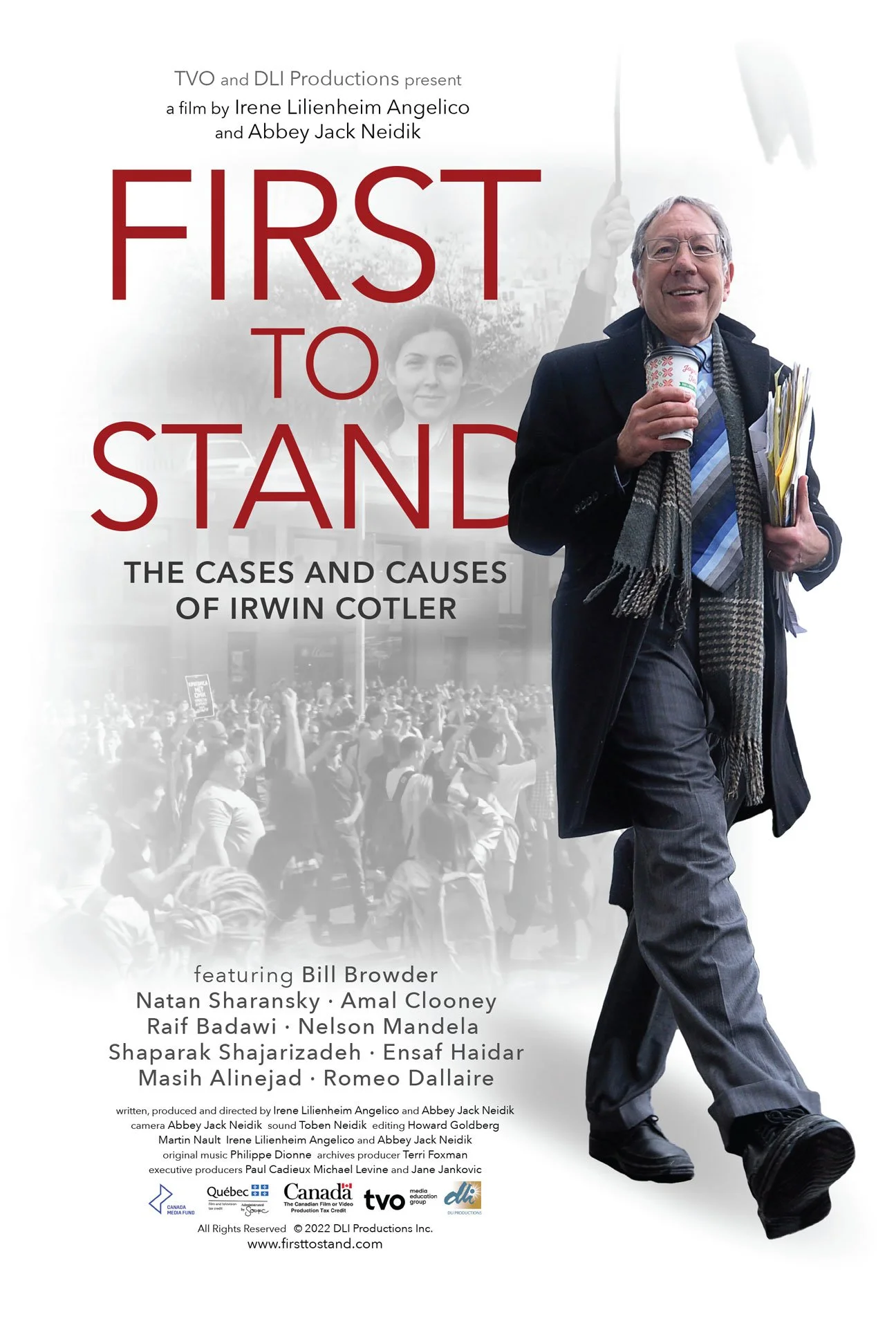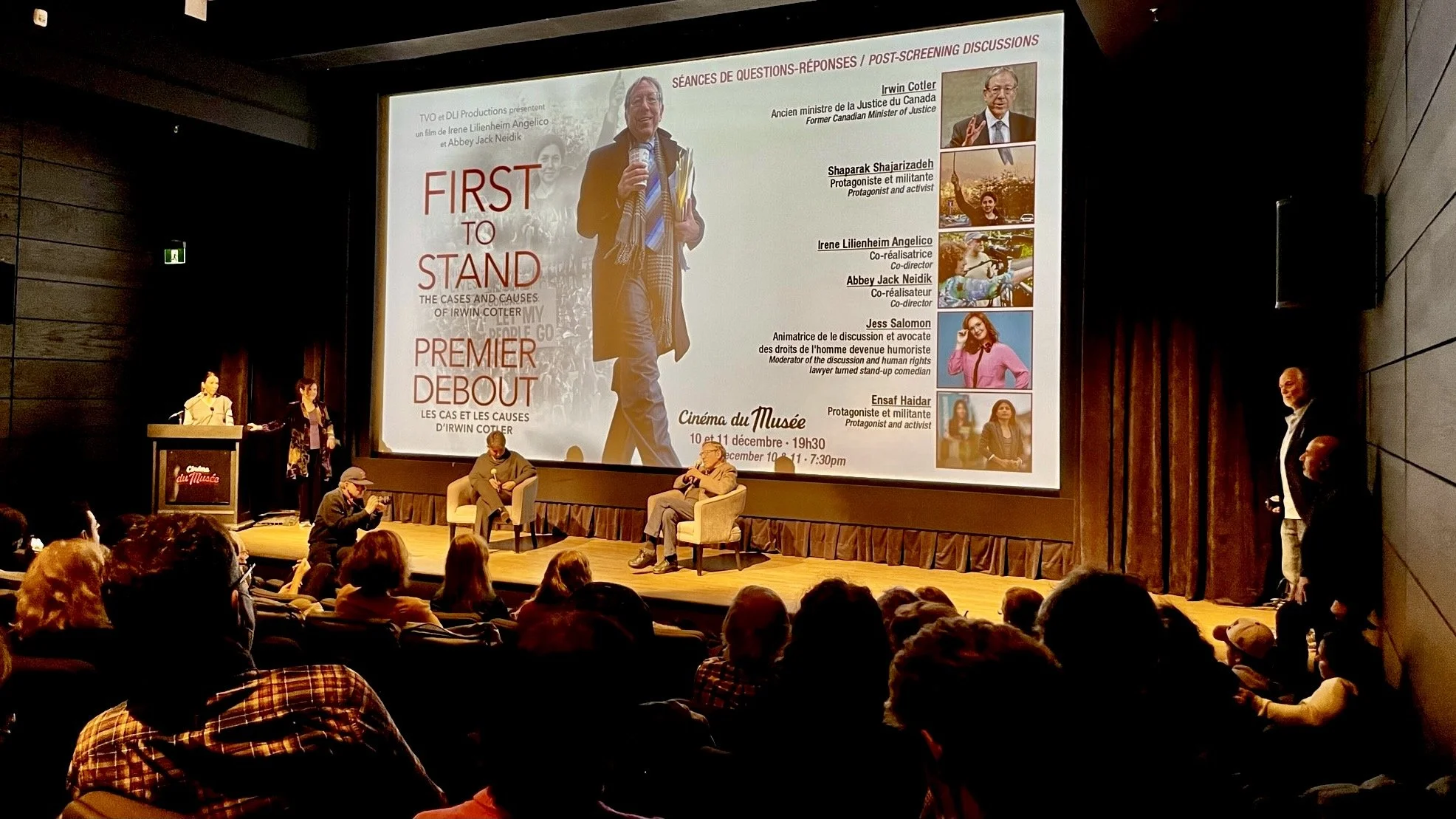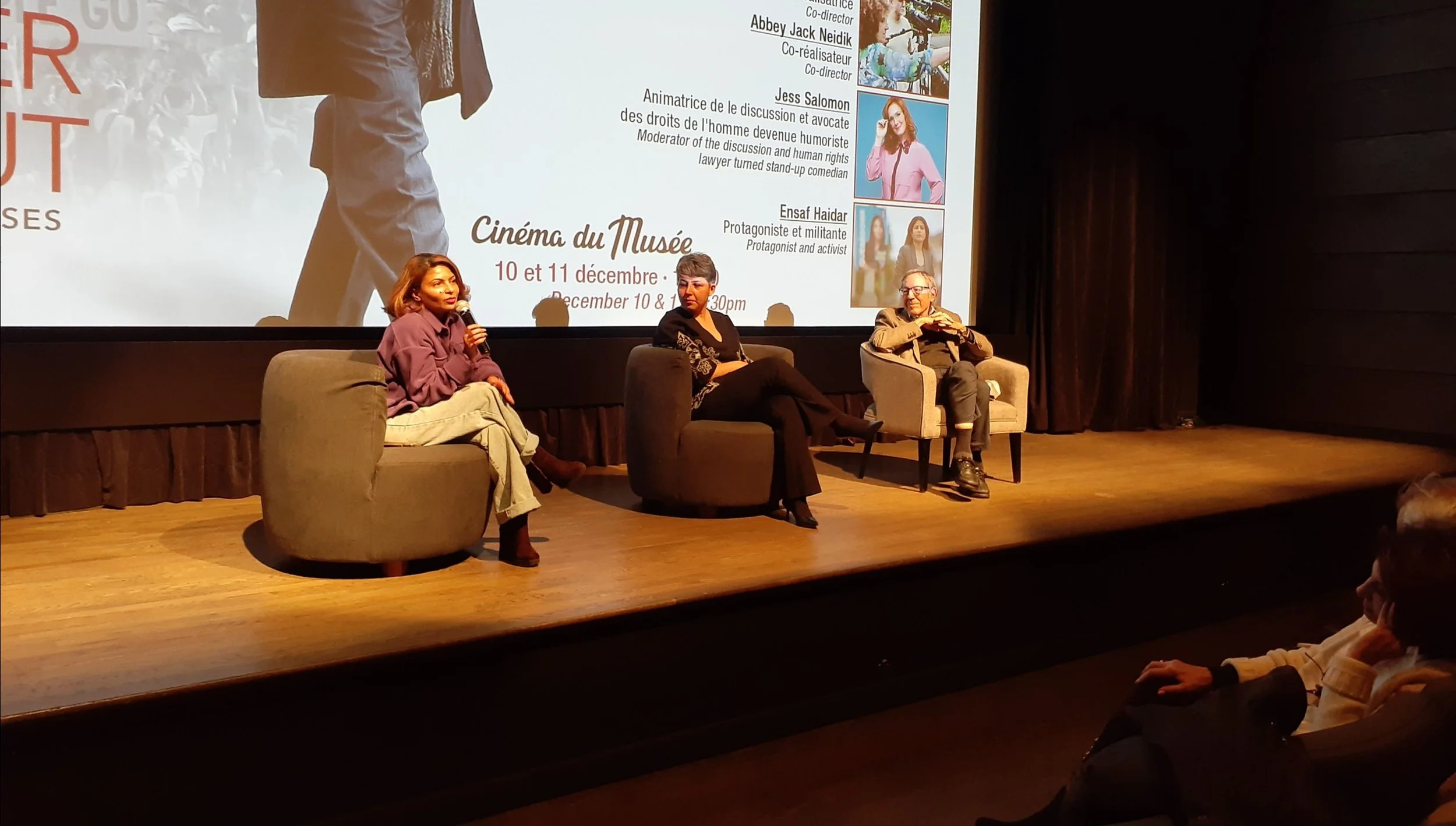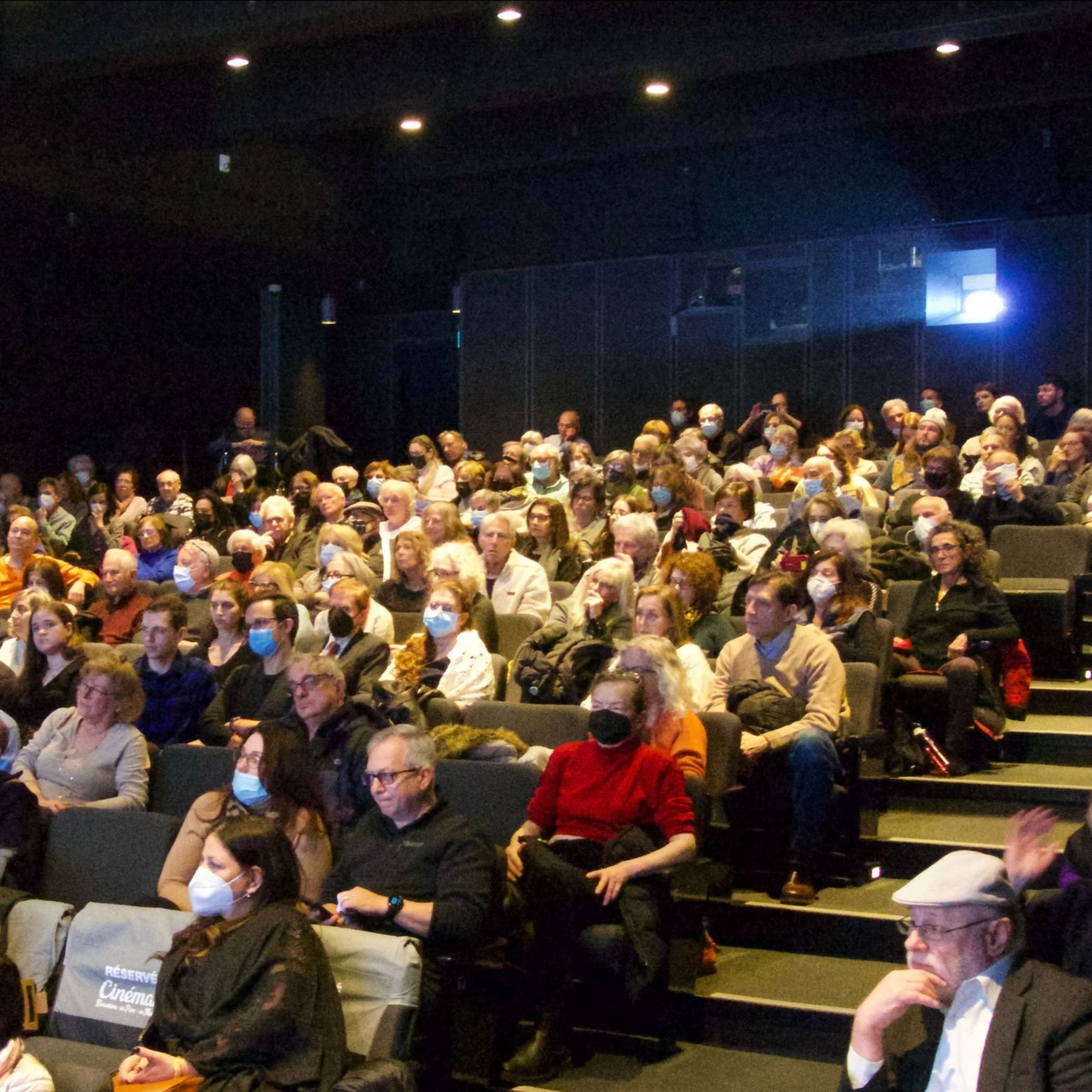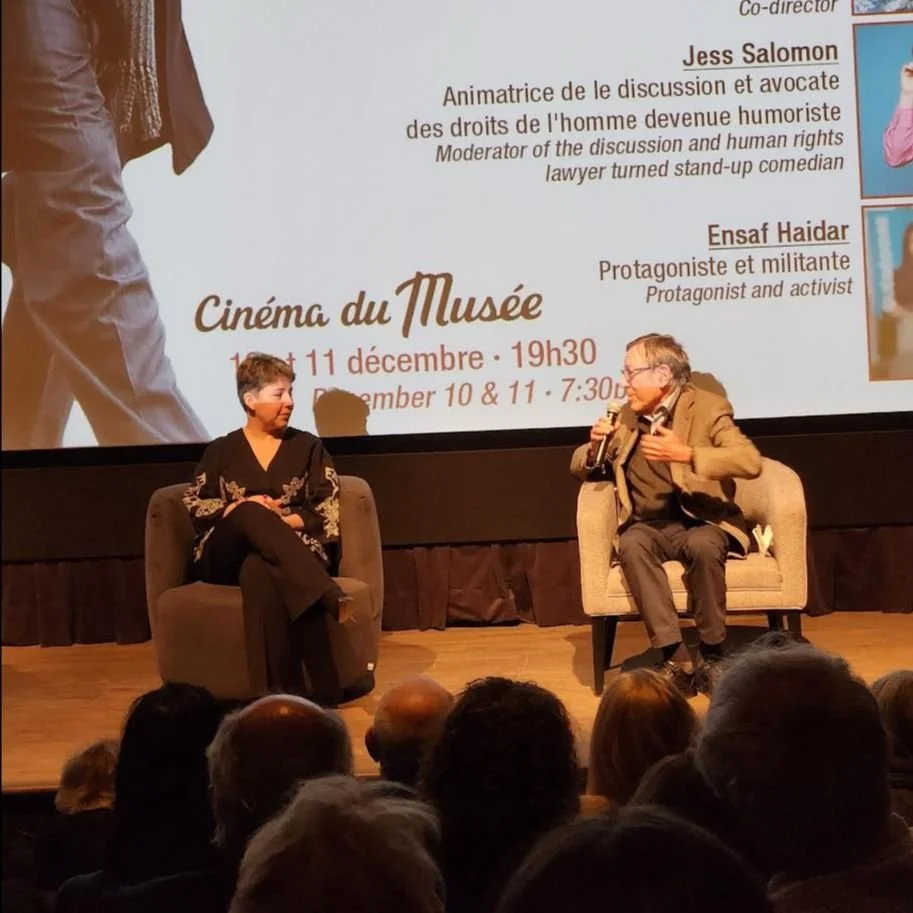Gary Knight
Gary is an award-winning photographer and a co-founder and director of the VII Photo Agency. He is also the co-director of the VII Foundation and director and founder of the VII Academy. Gary is a member of the Board of Trustees of the Frontline Club, London; co-founder of The GroundTruth Project, Boston; founding director of the Program for Narrative & Documentary Practice at the Institute for Global Leadership at Tufts University; twice chair and president of the World Press Photo Award; was a Nieman Fellow at Harvard University in 2009; and a Logan Non Fiction Fellow at the Carey Institute in 2017.
Gary has worked as a photographer all over the world since the late 1980’s, early in his career in conflict photography, and more recently with an increased focus on anthropology and socioeconomics.
In January 1993, he moved to the former Yugoslavia where he became involved in documenting war crimes and crimes against humanity during the civil war. During this period, he covered conflicts in Africa, the Middle East and the Balkans and worked widely in Africa, Latin America, the Middle East, South Asia, and the Far East (including North Korea) concentrating on human rights, poverty-based issues, and current affairs stories for US and European media.
From 1999 to 2009 he was a contract photographer for Newsweek Magazine. He has worked on assignments for Time, The Sunday Times, The New York Times, Paris Match, and Stern and his work has been published by magazines and newspapers worldwide. His work has also been exhibited worldwide and is in the collections of several museums and private collectors.
In 2000 with John Stanmeyer he conceived the VII Photo Agency which launched in 2001. VII was named as the third most influential entity in photography[ by American Photo Magazine in 2003. In the same year he founded with Ron Haviv, a Convisero mentor, The VII Foundation.
In 2005 Knight conceived the idea for the Angkor Photo Festival and Angkor Photo Workshops to support emerging photographers from Asia while he was teaching a workshop with other VII photographers, James Nachtwey, Alexandra Boulat and Antonin Kratochvil in Siem Reap. In 2008 he founded with Simba Gill and Convisero mentor Mort Rosenblum, the print periodical Dispatches.
In 2010 he founded and was the Director of the Program for Narrative & Documentary Practice at the Institute for Global Leadership until he resigned in 2018 to create and develop the VII Academy. The VII Academy is a non-profit institution which provides tuition-free education in media practice to the majority world and underrepresented communities in G20 countries from its campuses in Arles, France and Sarajevo, Bosnia. He was named a Logan Non-Fiction Fellow at the Carey Institute in 2017.
Knight was twice chairman of the World Press Photo contest in 2008 and 2014. He was vice president of the Pierre and Alexandra Boulat Foundation; was Chairman of the WHO/Stop TB Photography Advisory Board between 2009 and 2011, a board member of the Crimes of War Foundation and a trustee of the Indochina Media Memorial Foundation.
He is a member of the board of the Frontline Club, London, is a co-founder and was a member of the board of the GroundTruth Foundation.
Among his awards;
1996: The Amnesty International Photojournalism Award 1996/7 : Civil War In Zaire
2002: Amnesty International UK Media Award, photojournalism category, for his work on War crimes in Kosovo for Newsweek International.[5]
2003: Honorable Mention Robert Capa Award: The War in Iraq.
2003: Fuji France Photographer of the Year 2003/4: The War in Iraq
I first met Gary in 2010 when he was a Nieman Fellow at Harvard. I invited him to lecture and exhibit for the Institute on his powerful work, Evidence. Together we created this exhibition, Questions Without Answers.
Gary immediately struck me as a caring, superb instructor. I recruited him as an advisor for our new Exposure photojournalism program (my first effort at supporting a photojournalism program at Tufts, which previously did not have a formal journalism program), and named him as an INSPIRE Scholar at the Institute.
He joined forces with another Convisero mentor, Mort Rosenblum to prepare and accompany our Exposure students on narrative documentary immersions in Argentina, Cambodia, India, Kashmir, Uganda, and the US.
Gary understood and appreciated the foundation and passion of our students who had created with Exposure, an initiative strongly endorsed and supported by his colleague James Nachtwey. Exposure was proud to host the inaugural VII gathering of all its photographers.
At my invitation, Gary developed and taught Exposure’s successor program, the Institute’s Program on Narrative and Documentary Practice. Gary’s impact as a dedicated mentor was immediate. His students admired his intellect, his directness, and professionalism. They appreciated his great sensitivity and cultural awareness.
Significant beloved alumni of these programs include Sarah Arkin, Jessica Bidgood, Rachel Boillot, Matt Edmundson, Christina Goldblum, Hadley Green, Elizabeth Herman, Sam James, Austin Siadek, and Nichole Sobecki.
At Gary’s invitation I have joined VII Photo Foundation and its Academy. Our first collective effort yielded Imagine:Reflections on Peace. (2020)
I have had the distinct pleasure of working with Gary for decades.Details on our close collaboration over the years can be found here.
Now, in 2023, we are creating a proposal for Sai University in Chennai, for a collaboration with Convisero’s Shahidul Alam and his DRIK studio and for a South Asian workshop. It is based on our experience with PDNP and hope it will lay the foundation for a larger regional program based in India.
VII's Arles Exhibition Opening
With the support of Jennifer Stengaard Gross and Peter Stengaard, and the William, Jeff, and Jennifer Gross Foundation, VII Academy has opened a new facility for advanced media education, exhibition, and discourse in Arles, France.
Named The Alexandra Boulat Campus in honor of the late Alexandra Boulat, one of the founding photographers of VII Photo Agency, the facility is housed in a former salt warehouse on the banks of the Rhone River at the mouth of the Camargue delta. This building will join the VII Academy space in Sarajevo, Bosnia Herzegovina, to offer advanced level tuition-free training in visual journalism to men and women from the majority world and other under-represented communities from G20 countries. With this presence in Arles — a UNESCO World Heritage site and the former provincial capital of Rome — VII Academy will be close to the world’s leading festival of photography, Les Rencontres de la Photographie, as well as the French National School of Photography and the Luma Foundation.
Grace Spalding-Fecher
I am a senior at Tufts University majoring in International Relations and French with a concentration in globalization. I chose this combination as a way to further explore my interests in human rights, international affairs and migration that have been inspired by lived and learned experiences. I spent a wonderful childhood in Cape Town, South Africa where I lived until my family decided to return to the US. My experience growing up there informs many of my current interests and choice in classes as a way to understand the society and system that surrounded me growing up. In my course that explored historical perspectives on crises in Africa I wrote a paper about the rise of Afrikaner Nationalism in South Africa and how that created the foundation for the Apartheid state. Other courses such as Political Violence in State and Society, and Race and US-Africa Relations have allowed me to explore the intersectionality of these interests.
Outside of my courses I am the leader of Amnesty International at Tufts, where we work to raise awareness of human rights abuses and host weekly discussions about current events. This past semester we worked with other student groups to put on a symposium on Preserving and Promoting Freedom of the Press, which brought together journalists and activists many who are Institute for Global Leadership alumni. We also hosted a screening and discussion of The Dissident and participated in Amnesty’s Write for Rights Campaign.
With the Oslo Scholars program, I interned last summer for Vanessa Tsehaye and One Day Seyoum, an Eritrean human rights advocacy organization. Through my work with them I learned about the role and positive impact that NGOs can have on human rights issues. I worked with them to track human rights abuses in Eritrea and develop a strong administrative foundation as a new NGO. As part of the internship, I attended the Oslo Freedom Forum in Miami, FL, where I listened to and met many activists, politicians, and dissidents. While they all came from different countries and backgrounds, I was inspired by the way they were united in their fight against oppressive regimes and political disenfranchisement.
More recently I finished my spring semester abroad in Paris, where I was fortunate enough to further my French studies and explore my love for art history through complete cultural and linguistic immersion. In addition, it gave me the chance to explore and observe the intersection of my interest in international affairs and human rights from a different vantage point. Learning how to discuss those issues in French and continuing those conversations in my courses and homestay gave me invaluable insight into a non-American perspective.
Along with a fellow IGL student, I recently led the effort to apply for special accreditation for Tufts to send a delegation to the 5th United Nations Conference on the Least Developed Countries, which I will be attending in March to hear from civil society leaders and activists. Later in the month I will be leading a fact-finding trip to Morocco to learn about forced migration as a foreign policy issue and the role that NGOs play in these flows.
I am honored to be a part of the Trebuchet and join a community of passionate like-minded individuals. I am excited to become involved in the Trebuchet’s work and contribute to the meaningful dialogues within this community.
Nicole Shea
Nicole is a Managing Partner in Germany for Perett Laver, a leading international executive search firm "finding outstanding leaders bringing diversity and vision to 'purpose-driven' sectors in over 70 countries globally.
Her experience of senior level executive search includes Board, Chief Executive, Senior Academic and Administrative appointments throughout Europe, within the Higher Education, Research, Technology and Innovation, Social Impact and Environment Practices.
Prior to joining Perrett Laver, Nicole was Executive Director of the Council for European Studies at Columbia University (CES) and the Executive Editor and Founder of the journal EuropeNow. She oversaw the renowned annual International Conference of Europeanists, the prestigious World Society Foundation Global Fellowships as well as the Mellon-Dissertation Completion Fellowships, among others, and supported 17 Research Networks, including those addressing the Environment, European Culture, Immigration and Social Movements.
Before joining CES, Shea served as the Executive Director of the Eisenhower Leadership Center at West Point, where she was instrumental in shaping the Center’s innovative interdisciplinary programs and its successful global operation. Recently, she was elected Chair of COST Action 18204 “Dynamics of Placemaking and Digitization in Europe’s cities,” which aims to empower citizens to contribute with citizen’s knowledge, digitization, and placemaking to diverse ways of interpreting local identities in European cities.
A former Rotarian Ambassadorial Scholar, she completed her undergraduate work at Friedrich-Alexander-Universität in Germany and later earned both an M.A. and a Ph.D. in Comparative Literature from Binghamton University. She is the author of The Politics of Prostitution in ‘Berlin Alexanderplatz’ and the co-editor of The Many Voices of Europe: Mobility and Migration in Contemporary Europe.
I met wonderful Nicole when I was introduced to her by the then President of the Council for European Studies Barnard’s Profesor Sheri Berman who participated in my last EPIIC colloquium and symposia effort at Tufts, The Future of Europe https://www.tuftsgloballeadership.org/program/epiic-2016-future-europeI worked closely with her when she was the editor of EuropeNow as this link describes.
Allan Goodman
Dr. Allan E. Goodman is the Chief Executive Officer of the Institute of International Education, which marked its Centennial in 2019. IIE promotes the exchange of scholars and students, rescues scholars, students, and artists from persecution, displacement, and crises, conducts research on international academic mobility, and administers the Fulbright program sponsored by the United States Department of States. The Institute collaborates with a wide range of corporate, government and foundation partners across the globe. 108 of its directors, grantees, and alumni of programs administered by IIE are recipients of Nobel Prizes.
Dr. Goodman served as Presidential Briefing Coordinator for the Director of Central Intelligence and as Special Assistant to the Director of the National Foreign Assessment Center in the Carter Administration. He was the first American professor to lecture at the Foreign Affairs College of Beijing. Dr. Goodman also helped create the first U.S. academic exchange program with the Moscow Diplomatic Academy for the Association of Professional Schools of International Affairs and developed the diplomatic training program of the Foreign Ministry of Vietnam.
Dr. Goodman is a member of the Council on Foreign Relations, and serves on the selection committees for the Rhodes and Schwarzman Scholars and the Yidan Prize. He also serves on the Council for Higher Education Accreditation International Quality Group Advisory Council and the Board of Trustees of the Education Above All Foundation. Dr. Goodman has a Ph.D. in Government from Harvard, an M.P.A. from the John F. Kennedy School of Government and a B.S. from Northwestern University, and is the recipient of honorary degrees from Canadian, European, Japanese, UK, and US universities. He received decorations for his work in promoting educational exchange and scholar rescue from the governments of France, Germany, and Norway; he received the first Gilbert Medal from the Universitas 21 Organisation.
Before joining IIE, Dr Goodman was Executive Dean of the School of Foreign Service and Professor at Georgetown University. His books on international relations are published by Princeton, Harvard, and Yale University presses. He has served at the Department of State and the Central Intelligence Agency.
I was greatly informed and influenced by Allan's academic work for my efforts on secrecy, covert action and democracy at Emerson College where I conducted a graduate seminar symposium in 1982 on FOIA concerns and US foreign policy, Secrecy or Disclosure; at the Institute in 1988 on our Covert Action and Democracy and colloquium /symposium year, and my work with former CIA director, Admiral Stansfield Turner on democracy and terrorism.
Allan was the coauthor of Best Truth: Intelligence in the Information Age, Strategic Intelligence for American National Security, and The Need to Know: The Report of the Twentieth Century Fund Task Force on Covert Action and American Democracy, among other publications.
I was specifically privileged to have wonderful conversations with Allan about global education and the powerful juxtaposition of higher education and human rights, and honored to award Allan one of the Institute's Dr. Jean Mayer Awards for Global Citizenship.
One of my regrets during my time as director of the Institute was my failure to enact David Cuttino's and my vision of the initiative, Passport to Leadership with the IEE. (See below* )
David and I traveled to NYC to discuss these plans on the morning of September 11th, 2001 - thereafter understood as 9/11 - and witnessed the crash of the terrorist's second plane hitting the second World Trade Center's tower in the foyer of the headquarters of IIE opposite the United Nations buildings. We had a very hurried hello before the security police hustled us out of the building fearing the UN might be a significant target. I had left Boston very early that morning and parked my car next to one of the hijacker's cars where police had discovered an Arabic translation of aircraft flying instructions, a fact I discovered when surrounded by secret service and police vehicles upon my return that day to Logan airport to retrieve my car
I am introducing Allan to Convisero's Sasha Abaskin https://www.the-trebuchet.org/blog/2022/4/8/alexander-sasha-abashkin in hopes that IEE might be helpful with Scholars at Risk efforts on behalf of Russian and Ukrainian academic and other professionals who have fled their countries in the face of the Putin invasion of Ukraine. Likewise I am introducing Allan to SaiU and Krea Universities in India to see what collaborations might occur with IEE programs.
Passport to Leadership: A Demonstration Project of the Institute for Global Leadership at Tufts University and The Institute for International Education
Vision Statement
• Provide a transforming international experience for first year students with a clear focus on developing leaders with the ability to act effectively on complex world issues across cultures.
Goal
• Develop a pilot program involving an estimated 20% of the enrolling class at Tufts (200 -250 students) in an intensive program preparing them for project based international learning to be held at the end of the first year in five to six international locations (including Hong Kong, Mexico and Hungary). Participating Tufts students from the United States and other nations will be paired with an equal number of students from the leading universities in those countries. The goal will be to engage a total of 400 - 500 new university students at leading institutions in this new initiative
Objective
• The objective will be the eventual participation of a larger percentage of enrolling Tufts students and a larger involvement of international students around the world in this program based upon the success of the pilot project. This initiative will:
– Increase the preparation for rigorous scholarship and a passion for inquiry and active learning
– Increase the quality and amount of student research and engagement in special projects
– Increase the understanding of real issues of national and international importance
– Create a clear international orientation and the ability to operate effectively across cultures.
– Increase faculty and staff collaboration among leading international universities
– Foster an understanding of global citizenship
The Program
• Students will be selected during their first semester of university study
• Orientation to the project will begin during the second semester after their arrival on campus.
• Material will be prepared at Tufts to orient and prepare students for their international experience.
• Leaders from the public and private sectors in a wide variety of fields will be invited to meet with students throughout the program, e.g., Fulbright Scholars and Humphrey fellows
• Using the internet, Tufts students and participating international students will begin sharing their findings with one another and with their mentors during the spring semester prior to beginning the program.
• Students arrive on location following the completion of their first year of university study in 2003.
• Participants in the passport to leadership program will engage in the study of issues relating to several themes e.g., issues related to the environment
Outcomes
• Increase the percentage of students with an international perspective—both Tufts students and students from collaborating international universities
• Develop cross-cultural understanding among students, university faculty, administrators and leaders
• Enhance research and leadership skills for all participating students
• Increase communication skills
• Establish a replicable national orientation model
• Establish a network for international cooperation and collaboration among leading international universities
• Draw additional attention and effort to working with significant national and international issues
Advantages
• Students will meet leaders and experts in a wide variety of fields throughout the program and will be engaged in a rigorous program related to important national or international issues.
• Continuing educational projects, research and partnerships will result from this program at home and away.
• In an environment where less than 5% of US students study abroad, this project will establish a model that can be measured for its success in increasing foreign study, international understanding and the development of important leadership skills which can be repeated by other institutions in the United States and abroad.
• This model will accelerate the focus on international understanding and the development of leadership skills at a modest cost and will increase the value of the university experience for students.
Peter Kurey
I first encountered Sherman when I was a junior at Emerson College in Boston. I enrolled in his course entitled, Political Analysis, in the spring of 1981. The course was not only interesting and engaging but taught me a lot about critical thinking--something that was in short supply during the rest of my academic career.
Wanting to continue working with Sherman, he agreed to serve as my faculty advisor for my senior thesis during the fall semester of my senior year at Emerson in 1981. The topic of my thesis was the sale of AWACS radar planes to Saudi Arabia. Working one-on-one with Sherman was extremely rewarding and stretched my thinking into areas of foreign policy that I had never considered.
During my final semester at Emerson in the spring of 1982, I was part of the team, led by Sherman, that organized a symposium on the Freedom of Information Act. The symposium attracted an impressive array of figures from Washington and across the country including: The former Director of the CIA, William Colby, the radical lawyer William Kunstler; Mort Halperin of the National Security Council, the author of a book on the Rosenberg’s, novelist Robert Coover; the Official Historian of the US Department of State, William Slany; and the Director of the Ralph Nader Freedom of Information Clearinghouse, Katherine Myer. Working on the symposium was a rewarding and amazing experience that I will never forget.
While at Emerson I worked on three college newspapers. I was co-founder of, The Independent, which was totally run on advertising revenue. In my senior year, I was Managing Editor of the official school newspaper, The Berkeley Beacon, which won an award from the Society of Professional Journalists.
I graduated with a degree in Mass Communication in the spring of 1982 from Emerson, valedictorian of my class, summa cum laude, Gold Key Honor Society.
Wanting to pursue a career in publishing, my first stop was as an editor at the trade publisher Lebhar-Friedman in New York. After two years, I was put in charge of the biweekly editorial production of the trade publication, National Home Center News. My interest in publishing went beyond editorial to the business side, and I left this position in the fall of 1988 to pursue an MBA at The University of Michigan. I completed my MBA in the spring of 1990.
After a short stint in financial services, I was hired as a Senior International Marketing Manager at The Wall Street Journal/Dow Jones. I was in a small group that supported international advertising sales globally. After a year, I was promoted to Director of International Marketing focusing on providing creative solutions for the sales staff to sell the Dow Jones suite of products as well as primary and secondary research to support ad sales that grew from $30 million to $130 million over a period of approximately 5 years. I also took on an operational role in 1996 managing the $10 million operating budget of the group and working with offices around the world on their technology needs as well as logistical support.
In 1999 I was asked to work on a corporate project at Dow Jones to examine the computing environment within Dow Jones, with a specific focus on how to improve employees’ work experience. The outcome of this project was a new portal which included a heavy emphasis on company and competitive news as well as applications for expense filing and human resource transactions.
After my time on this project, I was hired as Director of Marketing for Dow Jones Newswires, the news service that is used across financial enterprises from traders to financial advisors. This market was in a state of change, and, in addition to supporting $250 million in sales through collateral, advertising and sponsorships, I developed a robust primary and secondary research program where we were able to identify key changes in the market where Dow Jones might have an advantage. We worked extensively with John Bowen and Russ Prince of CEG, two pioneers in high-net-worth investor research, to understand various business models used by financial advisors and what drove client loyalty. This led to the launch of Dow Jones Wealth Manager, an application designed to help financial advisors develop deeper relationships with their clients.
In 2006 I was asked to join a corporate strategy group within Dow Jones. The group I ran was responsible for market research, market sizing and competitive research across the Enterprise Media Group within Dow Jones.
In 2008, I found it necessary to re-invent my career with the collapse of the publishing industry due, in part, to the recession. Given the research and product development, focused on financial advisors, I was engaged in at Dow Jones Newswires, I was hired by Merrill Lynch as part of their Wealth Management Communications Department as a Senior Vice President. I wrote various types of communications and produced presentations for the Head of Wealth Management and Chief Operating Officer, among others. I also produced internal video presentations aimed at the Merrill financial advisors. I was assigned to be the communications lead on many large, regulatory projects. Most notably, I was on the team that rolled out the Department of Labor Fiduciary Rule. This was a regulatory initiative that sought to provide better advice to retirement investors with smaller balances.
Due to my work at Merrill, I was recruited by Union Bank of Switzerland (UBS) as a Director to run their Advisor Communications Department, within the U.S., in 2016. I had a staff of five that coordinated communications from all departments in the firm to the U.S.-based financial advisors at UBS. This position also had a significant regulatory communications function.
Around 2018, my wife and I started to re-evaluate our careers and our work/life balance. After serious consideration, we both decided to retire in 2019 to pursue our passions of cross-country skiing, fly fishing and bicycling. We sold our house in Chatham, New Jersey and relocated to Bozeman, Montana, where we live today. When not enjoying the great outdoors, which are abundant around Bozeman, I can be found playing classical guitar, tying flies for fly fishing, writing articles about fly fishing and cooking. I am happy to have reconnected with Sherman after all these years and be part of the Convisero.
Joshua Laub
This is my 29th year with the New York City Department of Education. I have served in the role of teacher, assistant principal, principal, and Director of Youth Development. Schools play a vital role in identifying children and families that need help and support, I support school leaders and work collaboratively with all city agencies and community-based organizations (CBOs) to provide our neediest families with the necessary resources to help their children succeed in our schools. Working shoulder to shoulder to design parent engagement strategies that establish trust and build pathways to resources and supports in the community. I help to identify and provide schools with training to identify children and families in crisis, develop effective screening tools, and strengthen mental health programs in our schools.
We have been building a network of external partners both in city agencies and CBOs to effectively address the unmet needs of our most vulnerable children and families. I am determined to create a cross-sector culture that addresses racism, shame, and stigma–as well as confusion and bureaucracy– that many of our families have to endure when seeking help. We need to make it easier for families to connect to the support and services they desperately need.
Innovation requires a deep understanding of the challenges and barriers that get in the way of connecting families to resources and support. After many years of experience working with families, we realize that relationships are a critical piece of this reform, and we must listen to the people we serve and honor their feedback. With experience working in low-income neighborhoods for years, I bring a deep understanding of the needs of our families. I bring a love of children and families to the work. As a proud father of four children, three of which currently attend our public schools, I see the impact the pandemic has had on each of them and the extra care, understanding, and support they need. My personal experience helps me appreciate the need to customize our efforts to the specific needs of every child and family in our city.
In many ways the school I served as Principal; Banana Kelly High School in the Bronx was a community school in practice. We invested a lot of time and energy in ensuring that our students and families felt heard, respected, and supported. During that time, I was recognized by the Department of Education and Advocates for Children for my work with children and families in shelters. Our school was celebrated for having one of the highest graduation rates for students in temporary housing. I am proud of the work I have accomplished over the last 29 years but I am most proud of what I have learned from the children and families I have had the privilege of working with in my various roles. I am excited about the prospect of bringing all that I have learned to this moment and helping our public schools provide a 21st-century education for all of the children we serve.
Presently I am leading an interagency team that is committed to connecting 11,000 children (ages 5-17) living in shelters to a caring adult at school. Our team recognizes that real support is much more than connecting a child and family to benefits it requires a relationship. In order to build trust, and strong partnership we need to engage with them about the challenges and obstacles that are getting in the way and problem solve together.
I greatly honor and admire Joshua for the extraordinary educator that he is. He has purposively taken on the most arduous and complex challenges that an educator could confront in the New York city public school system. I have witnessed firsthand the passion, concern, and dedication that he has for his students who I met with him over the span of almost a decade as the Director the Institute and the Co-Founder with my Associate Director, Heather Barry, of the Institutes’ Inquiry program – an immersive secondary school experiential learning program (now in its 31st year) dedicated to enabling high school students to confront and discern global challenges. Josh prepared them, accompanied them, and encouraged them every step of the way. So much so, that they often competed extremely well with private schools and specialized schools.
He has a distinctive sensitivity and at the same time, a very bold and courageous intelligent, confrontational style. Joshua backs down from no one and is one of the least intimidate-able people I know. While a man of strength and conviction, he is delicately attentive and thoughtful and an ideal mediator.
I first mt him in an unusual moment, I have laughed that he is the sole person responsible for my missing any of my symposia over 30 years. During EPIIC’s 1988 symposium on covert action and democracy, Joshua stood up to denounce our having brought a former director of the CIA, members of the US military and others he found morally objectionable. We held our symposia under the university’s controversial speakers program and campus police moved in to remove him. I suspended our session to escort him out, dismissed the police, and spent perhaps 3 hours with him discussing his thinking and opinions. He was a sophomore and I admired his passion, and his commitment to what he deemed an ethical protest. I reasoned with him and enunciated my commitment to not only an open spectrum of opinion but did not base my argument on freedom of expression, but freedom of thought and argued that it was essential for our students to confront dilemmas of the most vexing kind to debunk cant arguments and not to polarize but o seek to understand and intelligently confront policies that he and I agreed were in any ways deplorable. He realized that there were many people we had invited that were famed dissidents and protestors, from Daniel Ellsberg to Frank Snepp, from Mort Halperin and Senator Eagleton. No one was allowed to speak without knowing they would be confronted by other narratives and credible challenges. I invited him to present his thinking at Institute forums and encouraged him to enroll, as he did, in the following years’ EPIIC theme on drugs, international security and US public policy. I supported his research on CIA complicity and drug dealing in South Asia. As a member of the program committee, he was responsible for invitations, once again, to a wide spectrum of actors He moderated this panel and Peter Dale Scott later wrote a book in which he acknowledged the information he gained at the forum.
Joshua Laub gained notoriety when he disrupted a speech at Harvard Law School by a contra leader, Aldolfo Calero and denounced the school for inviting him to speak without any rebuttal.
Joshua was a wonderful student - very thoughtful - who based his arguments on research and reason. He went on to take his Masters work under the distinguished educator, Professor Theodore Sizer at Brown University who told me Josh was one of his very best students.
Sookrit Malik
Sookrit founded Energeia, an energy service company (ESCO) invested in creating a future where industries and commercial facilities can leverage their energy data to build, operate and finance more sustainable, energy efficient and economical utilities. Energeia works with companies ranging from
He holds a MALD from The Fletcher School of Law and Diplomacy in International Energy and Resource Policy and a BA from Tufts University. He is a Renewable Energy Innovation Fellow at The Liechtenstein Institute for Strategic Development (LISD) , a member of Honor Civicus and the Aspen Institute Socrates Program.
Roland Gillah
Roland GILLAH is a conflict analyst and humanitarian access negotiator.
Roland was born in New York City and graduated from Tufts University with a degree in International Relations. He began his career in California as a consultant with the Department of Defense, examining how cutting-edge technologies were reshaping the modern battlefield. Not content with observing from a distance, he moved to Tunisia and joined Mercy Corps’ humanitarian response in Libya.
Unlike many other analyst, the team accurately predicted the 2019 Tripoli War, and during the fighting Roland co-led the Access Working Group with UN OCHA, managing negotiations with warring parties so that aid could be delivered across frontlines. He joined Mercy Corps’ response in the Democratic Republic of Congo, then facing the second-deadliest Ebola outbreak in the world, where he worked to improve the speed and accuracy of rapid responses to displacement and help communities rebuild. Most recently, Roland managed security and humanitarian access for health and demining operations in Syria, where he handled complex relations with tribal leaders and led the evacuation of multiple organizations during an ISIS attack.
Roland seeks bridges between opposing sides and to elevate the voices of people living through conflict. Educated at a Quaker school but choosing to work alongside the military for much of his career, he believes that violence cannot be the solution, and that it is the duty of those with means to fight alongside those without to enable a better world.
Roland Gillah is a Master’s Candidate in SIPA at Columbia University. This past summer, he served as a Research Fellow on Protection of Civilians at U.S. Indo-Pacific Command, and prior to graduate school, he was a conflict analyst and humanitarian access negotiator. He worked for Mercy Corps’ Libya Analysis Team during the 2019-2020 Tripoli offensive and the Congo Humanitarian Analysis Team during the 2018-2020 Ebola outbreak in the Democratic Republic of Congo. Most recently, he served as Humanitarian Access & Security Manager with Humanity & Inclusion in North East Syria, working on demining and health activities. He started his career working on security sector reform in the U.S. Department of Defense and the Hacking for Defense program, based in Silicon Valley. He earned his B.A. in International Relations from Tufts University.
Roland is the quintessential avatar of the ALLIES program I designed with my students.
A courageous person of deep humane sensibility, he is a remarkable amalgam of boldness, self-sacrifice, and citizenship. He is a man of steeled determination and yet a very quiet, humble, reserved demeaner. His intellect and curiosity did not lead him to a life of reflection and criticism, attributes he surely possesses and will refine in academic pursuits, but he is clearly a man of action and determination. In an educational era of a desire for and promotion of "safe spaces" Roland's sensibilities and life are the antithesis. He served as ALLIES Treasurer and its FieldEx planning committee, he ran the media team in SIMULEX, a simulation for the Army War College for the Fletcher School, and journeyed to Turkey on a Joint Research Project trip. Here is one of his entries:
https://www.tuftsgloballeadership.org/blog/musings-after-one-week-gallipoli
Ayesha Jalal
I joined Tufts University as a tenured full professor in the fall of 1999. Since 2003, I have held a joint appointment at the History Department and the Fletcher School of Law and Diplomacy and am currently the holder of the Mary Richardson chair. After double majoring in history and political science from Wellesley College in 1978, I went to the United Kingdom where I received my doctorate in history from the University of Cambridge in 1983. I was a Fellow of Trinity College, Cambridge (1980-84), Leverhulme Fellow at the Centre of South Asian Studies, Cambridge (1984-87), Fellow of the Woodrow Wilson Center for International Scholars in Washington, DC (1985-86) and Academy Scholar at the Harvard Academy for International and Area Studies (1988-90). Between 1998-2003, I was a MacArthur Fellow. I have taught at the University of Wisconsin-Madison, Tufts University, Columbia University, and Harvard University.
Among her books are:
Partisans of Allah: Jihad in South Asia, (Cambridge: Harvard University Press, 2008)
Self and Sovereignty: Individual and Community in South Asian Islam since c.1850s (London and New York, Routledge, 2000; Delhi: Oxford University Press and Lahore: Sang-e-Meel, 2001)
Modern South Asia: History, Culture, Political Economy, joint author with Sugata Bose second edition. (London: Routledge, 2004, Delhi: Oxford University Press, 2004)
Nationalism, Democracy and Development: State and Politics in India, joint editor with Sugata Bose, joint author of introduction and author of article Exploding Communalism (Delhi: Oxford University Press, 1997)
Democracy and Authoritarianism in South Asia: a Comparative and Historical Perspective (Cambridge: Cambridge University Press, 1995 in hardcover and paperback; Indian edition by New Delhi: Foundation Books, 1995; and Pakistani edition by Lahore: Sang-e-Meel, 1995) The State of Martial Rule: the Origins of Pakistan's Political Economy of Defence (Cambridge: Cambridge University Press, 1990); Pakistani hardcover and paperback editions by Lahore: Vanguard Press, 1991; Indian hardcover edition by New Delhi: Foundation Books, 1992)
Ayesha has been a friend for all the three decades I directed the Institute. She has served wonderfully on our boards and revised processes, I am indebted to her for my ability to create the Colloquium on South Asia. We collaborated on a range of individual programs, ranging from the reaction to the Mumbai terror attack, the program of the Southeast Asia studies program and have shared a number of thesis students. She is among the people that I admire most in academia, for not only is she a remarkable scholar, but her diligence with her students is extraordinary. She is precise and demanding with a very soft, human touch and cares deeply about democracy and human rights.
Jim Sloman
Jim Sloman has been in the US equity investment industry for too many years to count. Starting soon after college as a retail stockbroker in Vermont, his path included retail stock office management in Cambridge, MA and institutional trading positions in Boston, New York and London. His career culminated as a founding partner and board member of Numeric Investors, an institutional equity money manager that grew from $15mm AUM to over $2b when he left the firm after 9 years to manage his assets. He has done this since 1999.
Jim has a thirty year commitment to mentoring Boston youth at Squashbusters, Year-Up and at More Than Years, where he was an eleven year member of the board of directors. He is a member of the Harvard Institute for Learning in Retirement where he leads and takes courses and served on the admissions committee. Over the years, Jim was president of his university's student legislature, has led a successful not-for-profit's capital fund campaign and participated in two others, was a member of several professional organizations, has lived in one city and worked in another, twice, has been an advisor to a privately held financial management firm, has invested in several successful Boston restaurants, has evaluated lots of private investments and invested in several and finally, Jim is currently serving as a board member of a social club and is cultivating several gardens.
Fly fishing, swimming and walking trips, both in America and abroad are his avocations, being a husband, father and grandfather are his joys.
Jim is a deft, thoughtful, challenging character who keeps me ruminating and hones my arguments. A thoughtful, avid reader, he is a friend whose independent ideas and insights I value greatly, not least because he has experiences and perspectives that purposively destroy ideological cant. Finally i have someone who enjoys watching football, and many sports, as I do, with joy and appreciation, and not a twinge of remorse, a gardener and long distance swimming, he is a man who cares about people and equality.
Upcoming ISYP Events, Updates on Existing Projects, Opportunities, and More!
December 9th: Nobel Prize Event with Student-Young Pugwash-UK
December 10th will mark 27 years since Joseph Rotblat and Pugwash Conferences jointly won the Nobel Peace Prize "for their efforts to diminish the part played by nuclear arms in international politics and, in the longer run, to eliminate such arms."
To commemorate their recognition 27 years ago, ISYP and Student-Young Pugwash UK will host an online event on December 9th. Three speakers who knew Rotblat personally will share their intimate stories of his life: from young scientist, to influential Pugwashite, to champion of student and young Pugwash voices. They will share rare videos and first-hand accounts from the ceremony and offer messages of hope about the future, particularly on the role of Pugwash, the need for dialogue across divides in times of international tension, and the importance of engaging a new generation of scientists and arms control advocates.
Please sign up for this event here.
ISYP (Re)-Launches South Asia Programming 🎉
On August 30th, 2022, International Student/Young Pugwash convened a two-hour virtual roundtable among early- and mid-career professionals on nuclear weapons issues in South Asia. The program was hosted in partnership with the Institute of Peace and Conflict Studies (IPCS), New Delhi and the Centre for Security, Strategy and Policy Research (CSSPR) at the University of Lahore. The roundtable took stock of participants’ perspectives on contemporary nuclear issues in South Asia, laying groundwork for future ISYP dialogues.
We hope to continue this work and host additional events in 2023. If you would like to get involved, please reach out to us at office@isyp.org.
For the full event report, please click here.
Recording: ISYP's Cuban Missile Crisis Webinar
On the anniversary of the Cuban Missile Crisis this October, ISYP hosted a webinar on “The Cuban Missile Crisis After Sixty Years” in partnership with the Bulletin of the Atomic Scientists.
Watch the webinar recording, here! (Passcode: 2r7!F3kU)
During the program, nuclear experts Stephen Van Evera and Sharon K. Weiner considered what we can learn from the Cuban Missile Crisis. Professor Van Evera discussed how the history of that crisis should inform the U.S. government’s current policies, with respect to the war in Ukraine. Professor Weiner described her virtual reality project, Nuclear Biscuit, which explores the difficulties of decision-making when nuclear threats seem imminent.
Post-Event Information: Third Nuclear Age Conference
The ISYP Third Nuclear Age Conference entitled “New Age, New Thinking: Challenges of a Third Nuclear Age” took place between October 31 and November 2, 2022. The conference mobilized over 20 emerging leaders and leading experts from around the world. Each presentation session featured a vibrant array of participants’ areas of focus, and expert panels offered insight that set the stage for the conversation as well as dug into the nuanced challenges surrounding non-proliferation and arms control to carry forward. Participants wrapped up their conference week with a writing workshop with the Bulletin of Atomic Scientists, and an open invitation to pitch articles to the Bulletin based on their research presented this week. ISYP would like to extend our sincere thanks to our supporters and partners: The Heinrich Böll Foundation, the German Foundation for Peace Research through the University of Duisburg-Essen, Pugwash Conferences on Science and World Affairs, Bulletin of Atomic Scientists and the Third Nuclear Age Project.
If you are interested in participating and/or learning more, please email office@isyp.org.
Student/Young Pugwash national group updates 🌐
Israel Student/Young Pugwash 🇮🇱
The Israel Young Pugwash program at Reichman University kicked off its 4th year of activity this week, with 20 new B.A. and M.A. students, excited to start engaging in Track II diplomacy.
We were honored to host Ezra Friedman, the Director of ISYP, for our first meeting, who gave a fascinating introduction to the Pugwash organization and the role of students within it.
Opportunities for Young Professionals 🌟
Check out these amazing opportunities relevant for young professionals and students interested in nuclear weapons, climate change, and security!
The Center for Arms Control and Non-Proliferation welcomes submissions for blogs to their Next Up in Arms Control series.Changemakers for the Planet is accepting applications from "changemakers who tackle the 'planetary crisis' aged 18-35 and based / with impact in Europe or the Middle East and North Africa." (Deadline : January 15, 2023)IFSH Hamburg is looking to fill two vacancies:A researcher on (almost) all things #EmergingTech (BMD, space, AWS, AI, machine learning or new delivery systems) with a keen interest in their regulation through arms control. A researcher from the natural sciences with a keen interest in escalation dynamics caused by fast kinetic weapon systems, the effects of nuclear use, or the verification of the absence of nuclear weapons.
For details, get in touch with Dr. Ulrich Kühn (kuehn@ifsh.de) or Dr. Moritz Kütt (kuett@ifsh.de).Note, some opportunities listed are limited by citizenship and in-person/virtual attendance.
If you have an opportunity that you would like shared on ISYP's newsletter, please contract office@isyp.org.
A Recap of the 2022 Oslo Freedom Forum in Taiwan
As we reflect on 2022, it’s evident how this year was a critical moment for human rights and democracy in Asia and globally.
One month ago, the Human Rights Foundation (HRF) returned to Taipei to host the thirdOslo Freedom Forum in Taiwan — making Taiwan the most frequent host country for our Forum outside the United States and Norway.
The 2022 #OFFinTaiwan was our long-awaited return after two years of pandemic-related postponements, during which Taiwan made international headlines as a model for its pandemic response and its ongoing resilience in the face of rising global authoritarianism.
The Program
We were humbled to receive a gracious welcome from the OFF community in Taiwan upon our return. Excited attendees, including many student delegations, local civil society organizations, activists, journalists, and government officials, filled the theater.
We heard first-hand stories from renowned global activists standing up to tyranny in Burma, China, Hong Kong, Thailand, Ukraine, the Gambia, Saudi Arabia, and Taiwan.
Political figures and government officials from the country, including Minister of Foreign Affairs Joseph Wu and Taiwanese Congressman Freddy Tshiong-Tso Lim, joined activists on stage to call for a united struggle against authoritarianism. We were also honored to be joined by Taiwan-based Australian singer Kimberley Chen, who performed at the event.
You can watch the theater program on oslofreedomforum.com and our YouTube page.
The Expo
The #OFFinTaiwan expo space featured many HRF programs, including Flash Drives for Freedom, the Ukraine Solidarity Fund’s Voices from Inside, Impact Litigation, Art in Protest, Responsible Finance’s Defund Dictators, and Wear Your Values’ Uncomfortable Truth. Visitors engaged with the interactive displays, wrote postcards to political prisoners, and viewed artworks by exiled Chinese Australian dissident artist Badiucao.
The space also featured interactive booths by HRF partner organizations: the Citizen Lab, Cofacts, Garden of Hope Foundation, Ghost Island Media, Hong Kong Outlanders, the Human Rights Network for Tibet and Taiwan, Open Culture Foundation, Snowball Community, Students for a Free Tibet - Taiwan, SyndAvant, Taiwan Association for Human Rights, the Taiwan Equality Campaign, Taiwan Foundation for Democracy, and the Taiwan NextGen Foundation. Representatives from these organizations were on-site to engage with visitors about their work.
Media Coverage
More than 100 journalists, photographers, and videographers attended the 2022 #OFFinTaiwan press conference and theater program. The Forum and our speakers have since received remarkable coverage in international and Taiwan-based outlets, including The Taipei Times, Focus Taiwan, Taiwan News, The Guardian, Taiwan Plus, and The Liberty Times, among others.
Local Meetings
For the first time in #OFFinTaiwan history, HRF coordinated closely with Taiwan’s Ministry of Foreign Affairs (MOFA) to spearhead a delegation of HRF staff members and international OFF speakers. The delegation schedule was action-packed, including: A meeting with the president of Taiwan’s Legislative Yuan, You Si-kun, attended by legislators across all political partiesA dinner banquet graciously hosted by MOFA’s Secretary General Lily Hsu, along with distinguished guests: commissioner from the National Human Rights Commission, Chi Hui-Jung, director general of MOFA’s Department of NGO International Affairs, Constance Wang, and representatives of international NGOs in Taiwan.A meeting with the inaugural chairperson of Taiwan’s National Human Rights Commission, Chen Chu, joined by six commissioners involved in Taiwan’s democratization process and human rights development.These meetings have been covered by Radio Taiwan International, Central News Agency, Taiwan News, and other major local news outlets.
What's Next
Despite the global backsliding of democracy, Taiwan continues to stand tall and strong — serving as an inspiration for the region and the world. As the first and currently only Oslo Freedom Forum in the Asia region, it’s incredibly valuable to continue bringing global activists to Taiwan to share strategies, exchange ideas, and strengthen the global movement for freedom. Now, more than ever, it’s important for us all to stand together.
HRF firmly believes Taiwan can become a capital for human rights. We hope to bring our Oslo Freedom Forum community back to Taipei for years to come and shine a spotlight on Taiwan as a global beacon for democracy. If you would like to support future Oslo Freedom Forums in Taiwan, please donate to our OFF in Taiwan fundraiser.
Julia Shufro
JULIA SHUFRO (2020-2021)
I am a Master of Arts in Law and Diplomacy (MALD) Candidate at The Fletcher School (Class of 2024), with concentrations in International Negotiation and Conflict Resolution, as well as International Law. Additionally, I was the Exchange Student Representative for Fletcher at Sciences Po - the Paris School of International Affairs, where I studied coercive diplomacy and humanitarian law for Fall 2022. During my graduate studies, I was selected for Harvard Law School's Program on Negotiation, in which I gained advanced diplomatic negotiation skills. I was an undergraduate at Tufts University (Class of 2022), majoring in French and in History. On campus, I was the President of La Société Française, on the board of the Tufts Tap Ensemble, and an active member of the Tufts History Society. I participated in the EPIIC Class of 2019-2020: Preventing Genocide and Mass Atrocities, in which I immersed myself into the theory and practice of genocide studies and learned about the complexities of preventing mass atrocity crimes.
Currently, I am a UNA-USA Fellow working in Political Affairs at the United Nations (UN). I worked in the Department of Global Communications as a Congressional Attache in Washington, DC and now focus on biological weapons, nonproliferation, preventing atrocity, and humanitarian law at the Office of Disarmament Affairs at the UN in Geneva, Switzerland. Previously, I worked for the Department of State, in foreign service, focusing on public diplomacy and transitions to diplomatic postings. Additionally, I was an Oslo Scholar for the Human Rights Foundation’s Oslo Freedom Forum. With this program, I interned for the Ufolo Studies Center for Good Governance in Angola. There, I worked with Rafael Marques de Morais on civic engagement and human rights and nonviolence education for police officers.
My current research is about the war on terror and conflict resolution in the Sahel. Upon completion of my Master's thesis about the limitations of international law on terrorism and conflict in the Sahel, I will have regional expertise in francophone Africa. My past research pertains to the creation of an international court of environmental justice, the failure to prevent the Rohingya genocide in Rakhine State, Myanmar, and how to alter international policy to allow for greater intervention without the Security Council Veto. I have always loved the study of history and human rights, and I am passionate about cultural immersions, travel, and foreign languages. My most recent publication was an Op-ed about the coup in Myanmar and about an idealistic end to mass atrocity crimes ensuing there.
I believe in the potency of personal anecdotes in teaching tolerance, respect, and the courage to care. My goal as a future educator and humanitarian is to teach and inspire altruism and to understand the world around me to the best of my ability.
During my sophomore year at Tufts, I enrolled in ‘Education for Public Inquiry and International Citizenship (EPIIC): Preventing Genocide and Mass Atrocity.’ As a French and history double major at Tufts, I studied the Holocaust and contemporary genocides. I was intrigued by the laws and human rights obligations that guided the international community, but I never explored these principles at Tufts. EPIIC was my favorite class that I took at Tufts, and Heather Barry encouraged me to pursue genocide policy, human rights, and conflict resolution. After our symposium, she asked if I’d like to be connected with Sherman. Sherman and I had an immediate, and almost serendipitous, connection, and I began to intern for him at his virtual institute, The Trebuchet. As it turned out, my mother (Tufts/Jackson College Class of 1986) had known of Sherman from her time at Tufts: her friends had taken classes with the infamous Professor Teichman who wore a leather jacket and rode his motorcycle to the Hill. It felt like Sherman and I were meant to be connected!
I worked at The Trebuchet for a year, and, during that time, I planned international webinars, met with activists, and began a People’s Tribunal for Environmental Justice with Sherman's support. With his unyielding confidence in my abilities, I became a LEAP Fellow at the Liechtenstein Institute for Strategic Development, and my passions for human rights and peacebuilding only escalated. Sherman taught me to follow my passions, to be excited about learning, and, ultimately, about the power of altruism. I know that Sherman is always thinking of me, and I feel so appreciative to have a friend and mentor such as him in my life.
New HRF Podcasts: November Recap
New HRF Podcasts: November Recap
Dissidents and Dictators is the Human Rights Foundation (HRF)'s podcast series that serves as a storytelling platform for some of the world's bravest activists, artists, policymakers, business leaders, and technologists. Throughout the month of November, we released a number of new episodes, including:
Episode #62 - The Flames of the Feminist Revolution Have Been Fanned in Iran
In this episode, recorded at the 2022 Oslo Freedom Forum in New York, we hear from Iranian journalist and activist Masih Alinejad, who spearheaded the “My Stealthy Freedom” campaign to protest Iran’s compulsory hijab laws for women and girls. Alinejad talks about the recent murder of Mahsa Amini and the reality of life for women living under the tyrannical Iranian regime.
Episode #63 - On the Frontlines of Freedom
In this episode, recorded at the 2022 Oslo Freedom Forum in New York, we hear from Oleksandra Matviichuk, the 2022 Nobel Peace Prize laureate and head of the Center for Civil Liberties. Matviichuk speaks about the horrors and atrocities of Putin’s war in Ukraine — she says, "You don't need to be Ukrainian to support Ukraine. You just need to be human."
Episode #64 - A Global Movement for Democracy
In this episode, recorded at the 2022 Oslo Freedom Forum in New York, Venezuelan Opposition leader Leopoldo Lópezdiscusses the fight for democracy in Venezuela and globally. “There is no one person, there is no one movement, there is no one country, there is no one company that can be successful in bringing about freedom. It’s only about the ‘We’.”
Episode #65 - All for the Land of Snow: Where is Home?
In this episode, recorded at the 2022 Oslo Freedom Forum in New York, we hear from Tibetan activist and community organizer Chemi Lhamo, who has dedicated her life to resisting the Chinese occupation of her homeland. Tune in to learn how we can rise above tyranny together and elevate the Tibetan cause.
FIRST TO STAND: The Cases and Causes of Irwin Cotler
Human Rights Day World Premiere: Cinéma du Musée
WITH FRENCH SUBTITLES
First to Stand will open on Human Rights Day, December 10 and 11 at 7:30.
The evening will be introduced by Jess Salomon (The Tonight Show with Jimmy Fallon), human rights lawyer turned stand-up comedian; and followed by a bilingual Q&A with Irwin Cotler, human rights champion; Shaparak Shajarizadeh, pioneer of the women’s right movement in Iran; and Ensaf Haidar, the wife and voice of Saudi blogger Raif Badawi.
Buy advance tickets online here to ensure availability: Cinéma du Musée
1379-A Sherbrooke St. West, Montréal
See you there!
“We spend a lot of energy dealing with the villains, but hardly any time celebrating the heroes. Irwin Cotler is one of the greatest heroes of our time. He’s taken on the most intractable dictators and saved the most unjustly imprisoned hostages. I hope everyone will watch First to Stand and become familiar his inspiring commitment to justice.”
Bill Browder“How does it start? It’s precisely in the schoolyard. It starts with the exclusion of the “other.” How you create a difference until… until you kill.”
Esther Mujawayo
“It begs another question: Are all humans human? Or are some humans more human than others?”
Romeo Dallaire
“It is clear that the challenges to media freedom are urgent, and they are global. But my message to all the ministers who are here is that they must make sure that their laws respect media freedom and they impose targeted sanctions on states that try to silence critical speech by detaining or killing journalists.”
Amal Clooney
“Having nail polish is against the law, or having makeup. For them, everything is seductive. And it’s not the man who has to be healthy and control themself. It’s the women. The women should cover their bodies, so men don’t get tempted.”
Shaparak Shajarizadeh
“Never forget, as Elie Wiesel put it, that indifference always means coming down on the side of the oppressor, never on the side of the oppressed. Wherever people are persecuted, he put it, whether by reason of their race or religion or belief or sex, that must be your place to stand. Each of you here has a voice. You can speak and you can act. You can be the agents of change and bring about the change that you want to see!”
Irwin Cotler
Pictures from the event:
Irwin Cotler in conversation with Shaparak Shajarizadeh (former Iranian political prisoner and women’s rights activist) and Ensaf Haidar (activist and wife of imprisoned Saudi blogger Raif Badawi)
Robin Pendoley
Robin Pendoley is an educator and social impact inciter based in the San Francisco Bay Area. He has served as classroom teacher and administrator in public schools, founder and CEO of an educational nonprofit, and collective impact facilitator. In each of these roles, Robin has worked to develop leaders and institutions that create a more just, equitable, and sustainable society.
After 8 years in nonprofits and public schools serving under-resourced communities, Robin co-founded Thinking Beyond Borders (TBB), an international education institution. The intensive and highly rigorous study abroad programs challenged aspiring social impact leaders to critically examine "do-gooding" as a means of unlocking transformative approaches to contributing to change. Over 13 years, TBB became an industry leading gap year brand with programs spanning 14 countries.
Today, Robin serves in his home community to advance racial equity in the public education system. As a collective impact facilitator, his work supports educational, social service, and community leaders to overcome the barriers to effective collaboration and system change in the service of local youth and families. His work includes supporting the development of a comprehensive educator of color pipeline to diversify the local education workforce, and facilitating the development of Community Schools. Ultimately, this work aims to reshape how power is held and wielded in the community, most notably by ensuring BIPOC youth and families are essential decision makers in partnership with system leaders.
With a BA in International Development from UCLA and Master's in Education from Harvard Graduate School of Education, Robin has advanced expertise in social impact theory and practice, as well as how to develop high impact, values-centered leaders. He's a skilled executive leader, having ensured effective governance and oversight on boards, engaged in rigorous financial oversight, led data-informed strategic planning, and developed a culture of learning and development. Robin believes that meaningful value creation requires a commitment to critical engagement with our values and privilege at each step of the journey.
I have known Robin since 2007 when Harvard University's Ford Foundation Professor of the Practice of International Education Fernando Reimers asked me to advise him and his friends on the creation of Thinking Beyond Boundaries. This program created a vital gap year experience for graduating high school students and I became their first advisor. The program took students to destinations around the globe with service projects dedicated to addressing themes that ranged from environmental degradation to poverty, health, and malnutrition. He chose the name of their initiative, Thinking Beyond Borders, from the mantra that I had chosen for my Tufts Institute – Thinking Beyond Boundaries: Acting Across Borders. I have always been impressed by Robin's concern about not only the quality of education but also his emphasis on inclusion and the equality of access to education. He is a superb mentor.
Fernando Reimers
Fernando Reimers is the Ford Foundation Professor of the Practice of International Education and Director of the Global Education Innovation Initiative at Harvard University. An expert in the field of Global Education, his research and teaching focus on understanding how to educate children and youth so they can thrive in the 21st century. He was a member of UNESCOs Commission on the Futures of Education which wrote the report ‘Reimagining Our Futures Together. A New Social Contract for Education’. He was a member of the advisory committee of the UN Education Summit. He has developed curriculum aligned with the United Nations Sustainable Development Goals which is in use in many schools throughout the world. During the COVID-19 pandemic he led numerous comparative studies examining the educational consequences of the pandemic and identifying options to sustain educational opportunity and to build back better.
He directs the Global Education Innovation Initiative, a cross-country research and practice collaborative focusing on education for the 21st century. He has written or edited 45 books and over 100 articles and chapters, including Education to Build Back Better, Primary and Secondary Education during COVID-19, and University and School collaborations during a pandemic. He has also authored several children’s books focused on inclusive values.
As part of his commitment to advancing educational opportunity, he serves on multiple advisory boards and committees at Harvard, particularly focused in advancing the global mission of the University and enhancing the effectiveness of the university’s programs to address climate change. He also serves on the boards of a range of education organizations focused on the improvement of education and the promotion of peace, inclusion and sustainability. He has served on the Harvard faculty since 1998. Previous to that he worked at the Universidad Central de Venezuela, the Harvard Institute for International Development and the World Bank.
Fernando has been a friend for several decades. I respect Fernando as my own mentor given the quality and scope of his activity regarding global education, particularly in the creation of Global Education Innovation Initiative. We both spoke at each other's conferences over the years, and we have also interacted on a variety of projects; the most noteworthy one led to the creation of a significant gap year beginning in 2007, Thinking Beyond Borders (TBB). This occurred when Fernando introduced me to Robin Pendoley and several of his peace corps volunteers, his students who had returned to pursue their master’s at The Harvard Graduate School of Education.
They were seeking a way to create a vital experience for graduating high school students and I became their first advisor. The program took students to destinations around the globe with service projects dedicated to addressing themes that ranged from environmental degradation to poverty, health, and malnutrition.
From their mission statement -The global community faces complex challenges that require more than simple responses.
Thinking Beyond Borders provided the skills and experience needed to help gap year students find sustainable solutions, living alongside local families and learning from local leaders, students joined communities where young people found their voices and prepared for lives of informed social action.
They chose the name of their initiative, Thinking Beyond Borders, from the mantra that I had chosen for my Tufts Institute – Thinking Beyond Boundaries: Acting Across Borders.
TBB closed down after the impact of several Covid years and I remained in contact with Robin, who is a member of Convisero mentors.
I was pleased to see a number of my Tuft’s graduating seniors join his programs to secure their Masters.

